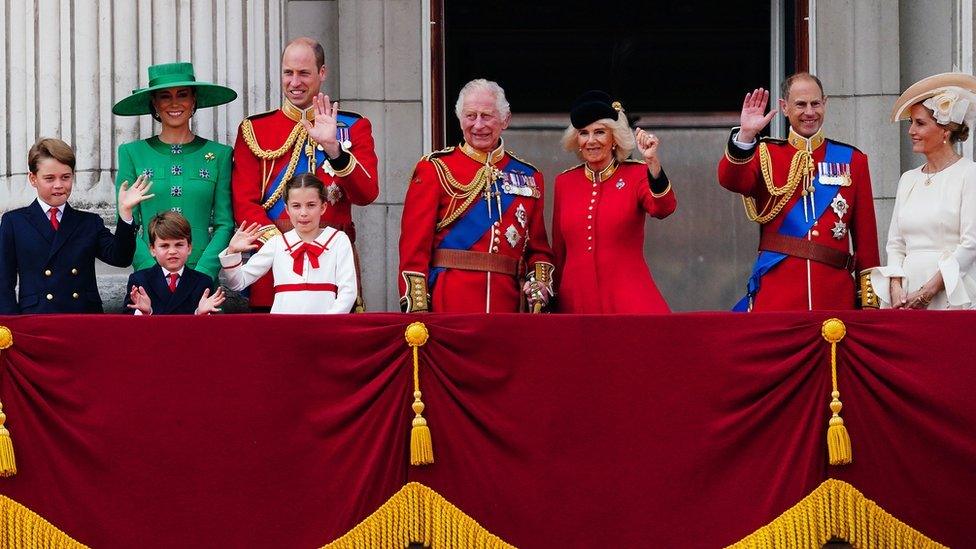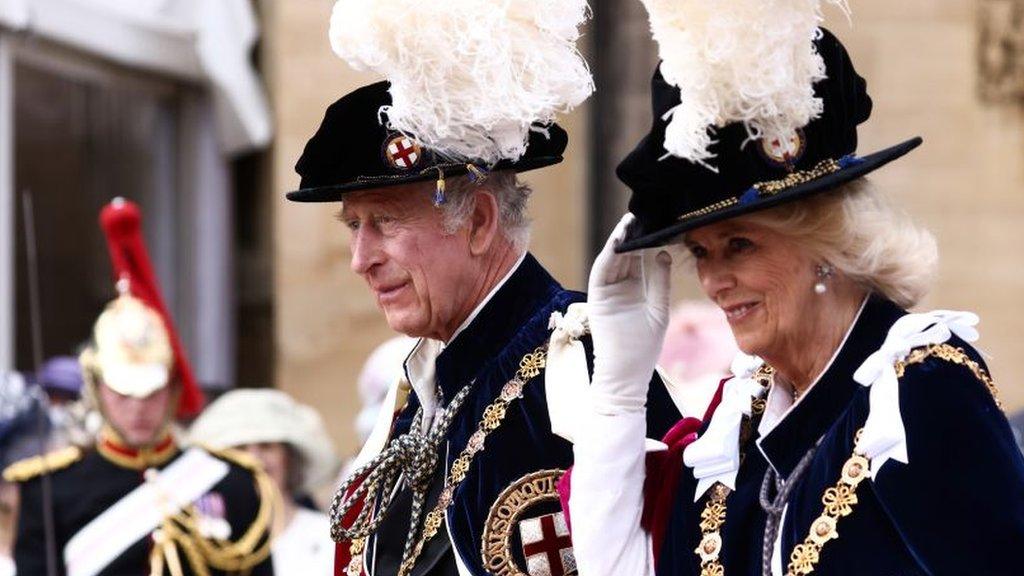King and 'royal death tax' claim rejected by Duchy
- Published

The Duchy of Lancaster provides a private income to the monarch, separate from the annual Sovereign Grant
The Duchy of Lancaster has defended how it uses money left by people who die without a will or any known relatives - after claims this cash was being used to subsidise royal finances.
A Guardian report, external questioned an "antiquated system" that sees the duchy receiving such unclaimed funds from deaths in parts of north-west England.
Profits from the Duchy of Lancaster are used for the King's private income.
But the duchy denies that unclaimed funds go into this royal income.
The mayor of Greater Manchester, Andy Burnham, is quoted by the Guardian as labelling this system which operates on the duchy's estates as a "bizarre remnant of feudal Britain" and calling for more "transparency".
Anti-monarchy campaigners Republic argued "this arrangement amounts to a royal death tax".
In most of Britain, when someone dies without a will and there are no relatives to inherit any money or property, the funds ultimately go to the Treasury. There are currently more than 6,000 people on the government's list of unclaimed estates.
But in the 45,000 acres of the Duchy of Lancaster, including parts of Lancashire, Cheshire and Yorkshire, it is the duchy that becomes the recipient of such funds, which are known by the Latin name of Bona vacantia.
According to this year's duchy accounts, this was worth £3.8m, after administration and other costs.
This has been a long-standing arrangement - and the duchy says that such unclaimed money is given to charities, or else is used for environmental projects or to maintain properties on the estate.
The Guardian's report challenges how this money is spent - suggesting that repairing buildings effectively subsidises the estate's commercial operation.
What makes this more controversial is that the Duchy of Lancaster is a major source of the private income for the monarch - yielding more than £20m per year.
But a spokeswoman for the duchy says that none of the unclaimed money following a death goes to the private income known as the "privy purse".
She said the funds are given to three charities - the Duchy of Lancaster Benevolent Fund, the Duke of Lancaster Housing Trust, and the duchy's Jubilee Trust - or else will be used to improve the environment on the estate.
The Duchy spokeswoman said their policy "makes clear that Bona vacantia funds can be used to protect and preserve historic assets, but not to generate income".
"Nothing has changed since the King came to the throne," she said, with the policy allowing funds to be used to repair public buildings and "historic properties" and "preserve them for future generations".
There is also money set aside in case relatives are discovered, and who might later make claims.
The government has a different approach to money forgotten in bank accounts in England - so-called dormant assets - with almost £900m since 2011 being reused to support community projects in deprived areas, and to help with debt problems.
The Duchy of Lancaster, dating back to the 13th Century, is a sprawling mix of rural estates and high-value urban property portfolio, including in central London around the Strand.
The income generated by the duchy, usually more than £20m per year, goes to reigning monarchs, but they are not entitled to the capital or assets of the estate. This year there was a surplus of £26m, mostly drawn from the property portfolio, with net assets worth £641m.
The private income from the Duchy of Lancaster is separate from the taxpayer annual funding for the monarchy - known as the Sovereign Grant and currently £86.3m - which is used for royal buildings, staffing and travel on official engagements.
In recent years, much of the Sovereign Grant budget has been taken by a long-term project to repair and renovate Buckingham Palace.
As well as the Duchy of Lancaster, the Bona vacantia arrangement for deaths without wills or known relatives also applies to the areas of the Duchy of Cornwall, now the responsibility of Prince William.
Such unclaimed funds in the Duchy of Cornwall go to the Duke of Cornwall's Benevolent Fund, which is used for local community projects and charities.
Graham Smith, chief executive of Republic, said: "As with everyone else in the UK, if you die without a will or next of kin, your estate should be used for the public good, not handed over to a couple of billionaires."
But the Duchy of Lancaster spokeswoman said the unclaimed funds were used to "support local community initiatives, social housing and historic restoration across the Duchy of Lancaster estates".
